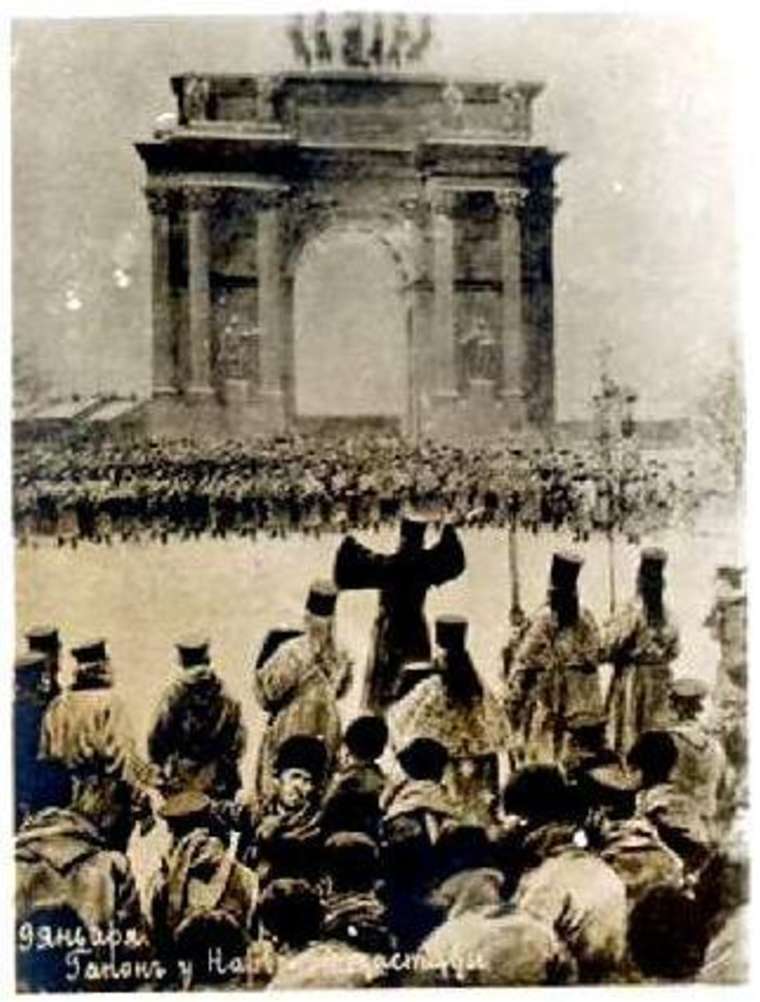So is Russia doomed either way because if George were to follow in the footsteps of his father, it probably won't end well. Also, it is unlikely he would be a supporter of a full-blown constitutional monarchy, that would upset the Russian nobles and his family.
Yeah, sure: as I said, it took seven decades for “this particular brand of autocracy” to fail but it had little to do with OTL Russian monarchy.
again, why is Russia being conservative (and not a constitutional monarchy) equal disaster? As pointed out, Alexander I & II for all their liberalism, were disasters as rulers. Nikolai I and Alex III had got more than a bit right in their reigns (despite being conservatives). Even Nikolai's record isn't all bad, but it isn't helped by his, as
@alexmilman said: "little bit pregnant" stance. Germany was certainly scared enough of a conservative Russia being successful - why they sent Lenin back to disrupt the equilibrium - but I think if they'd known what chaos they were unleashing there, it would
not have happened.
It probably won't cause an earlier Russo-Japanese War (it was a deranged individual and Japan would've apologized as they did OTL, just more intensely), but this is still in the early stages of the competition for influence over continental NE Asia (Manchuria and Korea) and this might well turn Russia's full attention to the region earlier, rather than have them wait until after the First Sino-Japanese War (they didn't really expand their influence or holdings past Outer Manchuria until then). Japan's in no position to fight Russia yet (they haven't cut their teeth beating the Qing yet, so Japanese policy makers are likely to back down to Russian pressure as OTL).
AIUI, Nikolai didn't want the Russo-Japanese War (or World War I, he's pretty much responsible for calming the waters between the Austrians and the Serbs so that the Serbs walked back most of their demands). But he was pressured into both. The RJW by forces at home, WWI by outside factors.
though it might also prevent Russia from making reforms in advance of a large-scale European conflict since they won't be embarrassed militarily.
again. AIUI, Russia was in the midst of military reforms from the get-go of Nikolai's reign. The navy was neglected, yes, but I would lay the blame at Grand Duke Alexei Alexandrovich's door there, rather than Nikolai's.
Not defending Nikolai but he really does get the blame for a lot of stuff that he really had no role in. Good news is that Georg - as a naval junior officer - likely knows Alexei is unfit for command and removes him at the start of his reign (not sure if Nikolai didn't know how incompetent Alexei was or just didn't have the courage to remove him until he couldn't)
Dissenters who refused to accept the supposedly divine authority of the Tsar were tortured and then murdered by the Russian state.
uh-huh. And what about the people that Nicky appointed that the radicals murdered when their policies started actually benefitting the state?
long history of political violence, anti-semitism
As for anti-semitism, while I do not minimalize it by any means, the French Third Republic's whole anti-semitic schtick wasn't really much better. And one could argue that France between 1789 and 1900 was really just a merry-go-round of coups and countercoups- the Terror, the Vendée, the Terreur Blanche, both Paris Communes (the 1870 one and the lesser known one in the French Revolution), the attempted coup of Simon/Broglie, the attempted coup of Boulanger, Vaillant's bombing of the Assemblee in 1893, the Dreyfuss Affair in 1894, Zola's allegation of an anti-semitic coup in J'Accuse...(not counting the successful coups like the Brumaire of Napoléon or his nephew, the July Monarchy- essentially it was a coup in all but name- etc etc). Now, France isn't Russia, but it just goes to show that you can't really argue that it's either "unique" in political violence or anti-semitism.
It was the direct result of decades of misrule by both Nikolai and his father, and the carnage they caused in trying to uphold an outmoded and unjust political system.
misrule is a good joke for when records (published under the failing Soviet Union and shortly after in the 1980s/1990s) show that prices for stuff under Alexander III and Nikolai II (war aside) where actually
better than under the Soviets. Also, in one report, an inventory is taken of a "poor" person's house in 1899 (or some other year in their reigns) and then someone of a commeasurate standard of living at the time of the study. The findings show that poor person under the czars would've been deemed as "horribly bourgeois" and suspected of being a "corrupt Westerner" by comparison. Because the study's
next table shows a comparison of prices between stuff in Russia (coffee, clothes, food, whatever) under Nikolai II with prices charged for equivalent stuffs abroad (Lyons and Manchester vs Novgorod or Yaroslavl rather than London/Paris/Moscow). And guess what? Not only were you
able to
get "luxuries" like chocolate and coffee in Yaroslavl, but it was
cheaper to buy a pound of coffee in Russia than what it was in Manchester. Indicating that the so-called "misrule" was sure as hell having a better standard of living (or at least, comparable) than republican France or constitutional England
While I tend to view it with a generous helping of salt, the criterion of disbelief does count: why on earth would a Russian historian under the Soviet regime (IDK why I think it was in 1987) risk his neck to point out how much
better things were, not under Lenin or Stalin, but under the bogeyman Alexander III/Nikolai II.


